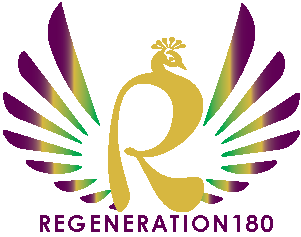What is a Community School?
What educational advantages do learning at a Community School offer Black students?
A community school is an educational institution that serves as a hub for learning, support, and engagement. It goes beyond conventional academic instruction by offering a range of services and programs that address the various needs of students, families, and the community as a whole. ReGeneration Fawohodie House (RFH) aims to forge partnerships with local organizations, businesses, and stakeholders to offer an innovative and transformative environment for both collective and individual learning.
The goal of a community school is to create a holistic and supportive environment that enhances the overall well-being and educational outcomes of students while strengthening the bonds within the community. RFH comprises enrolled homeschooled students from families eager for authentic learning experiences. Studies and observations shed light on the following benefits of this approach schooling approach:
Mixed-Age Learning: One of the key features of the one-room schoolhouse is the inclusion of students from different age groups in a single classroom. This promotes peer learning and mentorship, as older students can help younger ones, and younger students can be exposed to more advanced concepts. Research suggests that mixed-age learning can lead to improved social skills, empathy, and a deeper understanding of the subject matter or concept.
Personalization: In a small, mixed-age classroom, instructors can provide more individualized attention to each student's learning needs. This personalized approach can lead to better outcomes and a greater sense of belonging among students.
Community Engagement: One-room schoolhouses are often deeply integrated within local communities. This close connection between the school and the community can foster stronger relationships among students, parents, teachers, and community members. Research indicates that community involvement positively impacts students' motivation and overall educational experience.
Collaborative Learning: The close-knit nature of one-room schoolhouses encourages collaborative learning. Students often work together on projects, discussions, and problem-solving activities. Collaborative learning promotes critical thinking, communication skills, and a sense of camaraderie.
Flexibility in Curriculum: One-room schoolhouses often have more flexibility in curriculum design. Teachers can adapt instruction to the interests and abilities of their students, creating a more engaging and relevant learning experience. This approach aligns with research supporting student-centered and inquiry-based learning.
Holistic Development: Small classrooms in one-room schoolhouses allow educators to address not only functional needs but also social-emotional, cultural, and character development. Research shows that a holistic approach to education improves students' well-being and prepares them for a balanced and successful life.
Community Values and Identity: One-room schoolhouses often emphasize local culture, heritage, and values. This helps students develop a strong sense of identity and belonging. Research supports the importance of culturally relevant education in enhancing student engagement and self-esteem.
ReGeneration Fawohodie House is making significant strides toward recapturing the essence of authentic education. Operating as a modern 21st-century one-room schoolhouse, we cater to ages 6-18 within a collaborative environment. Students are empowered and motivated to learn at their individual rhythm, pursue their passions, and assume control over their education and future. Through collective efforts, our youth will gain the skills to shape, construct, nurture, and propel their community forward.
ReGeneration Freedom House is…
led by a School Psychologist (who is also a parent) with two decades of educational expertise
nurtured by fellow lifelong learners, as well as parents like yourself
adaptable in terms of programming
mindful of class size, capped at 15 students (of various ages)
guided by a distinctive African-Centered curriculum framework
centered on the comprehensive human development of individuals of African descent through student-centered learning
To learn about our weekly homeschool group, Black Learners Collective (BLC), click HERE.
